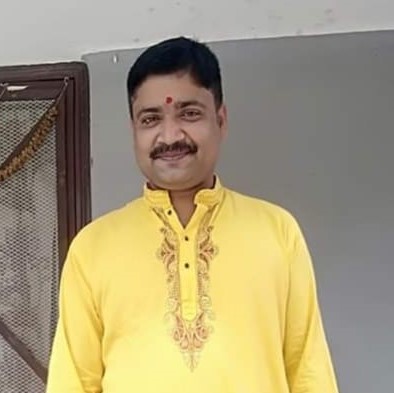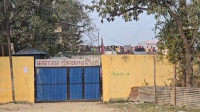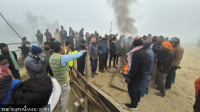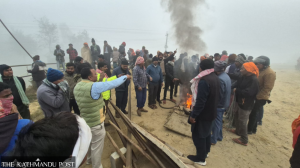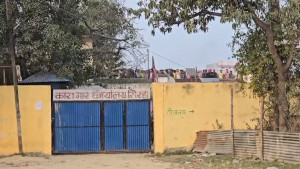Madhesh Province
Victims of crimes continue to be at the receiving end of panchayat justice
Most of them have no knowledge of legal proceedings while factors like lengthy legal process and financial burden drive them to seek justice from within the community, lawyers say.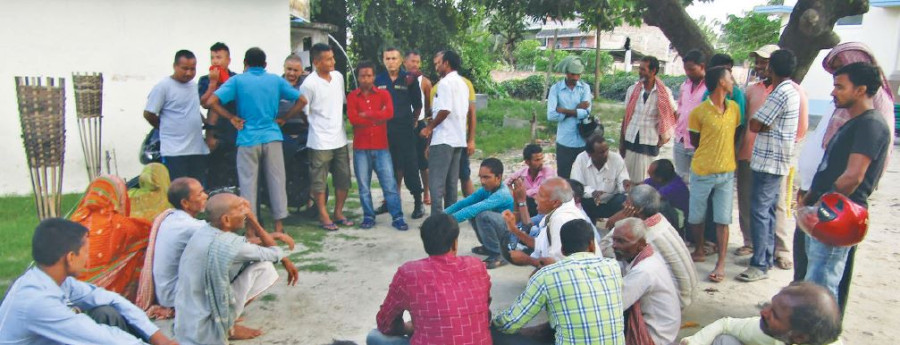
Abdhesh Kumar Jha
On September 14, a 17-year-old girl of Dakneshwori Municipality-7, Saptari was found dead in her house. She had allegedly killed herself. Earlier in the day, she had been raped by four men. She was called to a panchayat meeting of village elders and was asked to "settle the matter" outside the court of law and not to report the incident to police. For this she would be given Rs 55,000 as compensation.
Also in September, in Bishnupur Rural Municipality, Siraha, a 16-year-old was raped and a panchayat held. The panchayat head Jagbir Yadav, former ward-6 chairman of the rural municipality, called for a meeting after the victim and the accused were allegedly “caught in the act” on September 28.
The meeting was held on October 3 and the Panchayat members prepared a document stating that the accused would pay Rs 1 million to the victim. The victim’s family refused and a scuffle broke out.
The victim's mother, Anju Devi, then filed a complaint at the District Police Office, following which members of the panchayat who were involved in covering up the crime were arrested along with the accused.
“We have arrested all those involved and have registered a case for trying to cover up a rape case,” said DSP Shaligram Sharma, the district police spokesperson.
Officials from Province 2 said the existence of the panchayat system even to this day and their involvement in settling criminal cases showcase the strong presence of patriarchy in society.
Anju Devi and her daughter have left their home since and are currently living at her maternal home in Thalaha, fearing for their safety in Bishnupur.
In villages of Province 2, local representatives who have been elected to or have held public offices have been found to take an active part in panchayats. Anita Devkota, a women’s rights activist based in Saptari, says the police too encourage the practice. “Before the pandemic, the District Police Office would be crowded with people attending panchayat hearings,” she said.
Even when victims avoid panchayats and go to the police, they are advised a “settlement” rather than following the legal procedure, says Devkota.
“This is also a manifestation of how the culture of impunity has got systematic acceptance in the society,” said Deependra Jha, chief attorney in the province. “The middlemen, who see crime as an opportunity to make money, have been promoting such activities.”
A panchayat meet is called in order to resolve societal disputes between the members of the society. In most of the cases, the victim and the perpetrator call in influential local people from various walks of life to resolve the issue and to decide on the penalty for the guilty. These influential people or the "panchas" are affiliated with various political parties or are social workers, business people, and village elders, among others.
Shanti Devi Seth of Bedhewa in Tirhut Rural Municipality was physically assaulted by her neighbours, a father-son duo, in the second week of August. The 70-year-old had registered a complaint at the District Police Office. The police asked the elderly victim to settle the matter at the Panchayat meeting at Lohjara Police Beat.
“I went to the District Police Office to file a complaint against my assaulters but since they are influential people, the police sent me back without taking my complaint. They asked me to settle the matter at the local police office,” said Seth. “I know the panchayat and the local police will not take action against those men.”
According to Devkota, most victims come to her with similar complaints of being pressured by the police to settle the matter through panchayat.
However, Deputy Superintendent Tilak Bharati of Saptari Police refuted such claims. “We seek legal procedure to solve cases of serious nature, especially of gender-based violence. Only some minor cases such as theft and boundary disputes among neighbours are solved through the panchayats and that too when the victims themselves approach the panchayat."
Baburam Dahal, a civil society member in Province 2, says some victims choose to seek justice through panchayats to avoid legal hassles. “In some cases, victims go to panchayats because the legal procedure is long drawn out and costly. When a case reaches the court, the victims face many hassles,” Dahal said. “For victims, justice delayed is justice denied.”
SP Rajendra Prasad Dhamala of the Saptari District Police Office says police have been carrying out community outreach programmes through various area police offices to acquaint the locals with the legal procedures.
“We are also encouraging them to seek help from the local judicial committees on matters that don’t carry serious criminal charges,” he said.
In case the police fail to register a case, the victim can always file a case through the Office of the Government Attorney or at the High Court, as per the Criminal Procedure Code, according to lawyers.
In Rautahat too, political leaders and elected representatives are found to be holding panchayats for crimes of serious nature.
DSP Bharat Shrestha, the spokesperson of Rautahat police, recalls a case from 2018 wherein Abdul Kalam Azad, a Province 2 assembly member, was accused of holding a panchayat meet for an out-of-court settlement in a rape case involving a 12-year-old in the district.
The victim’s family then filed a complaint with the Area Police Office in Garuda. Police arrested 50-year-old Sahamad Ansari for committing the crime; he is serving a jail term following a court order.
“Since then, panchayats had stopped intervening in such matters but the last six month has seen a rise in such instances. Panchayats have again started hearing rape and violence against women cases in villages in Rautahat," said Shrestha.
Indra Dev Yadav, Chief District Officer of Rautahat, says the upper hand village councils have over legal matters in villages has already begun showing adverse effects on society.
"Trying to find a solution to every case through panchayat demoralises the victim and boosts the morale of the perpetrators," said Yadav. “This is not a good practice. There are legal systems in place and they must be followed by everyone.”
According to the data from Women, Children and Senior Citizen Service Directorate, a division of Nepal Police, in Rautahat, many cases of domestic violence have been resolved through panchayats. Last year, 413 cases of violence were registered at the directorate, of which 110 were resolved through panchayats.
Historian Dr Pitambar Lal Yadav says that the tradition of holding a panchayat began with the formation of groups to resolve societal disputes. However, they have increasingly begun hearing cases outside their jurisdiction.
“In the early days, Panchayat members wouldn’t take sides. Rather, they would listen to the matters on the basis of facts, justice and merits,” said Yadav. “However, most panchayat meets these days are giving verdicts based on political affiliations and in favour of the people from a certain group.”
Govind Bandi, a human rights lawyer, said there are criminal laws in Nepal that authorise local units and police to mediate between the disputing parties in minor criminal offences such as theft and family feuds.
“There is also a provision for court-sponsored mediation,” said Bandi, “However, cases of serious nature like rape, battery and abetment to suicide cannot be settled outside of the court and respective agencies must carry out their duties.”
Jha said the failure of maintaining rule of law is the main reason such criminal practices still thrive in society. “Fair investigation of the crimes like rape and assurance of justice to the victims as dictated by law could discourage such illegal activities.”
Shiva Puri in Rautahat and Bharat Jarghamagar in Siraha contributed reporting.




 13.12°C Kathmandu
13.12°C Kathmandu